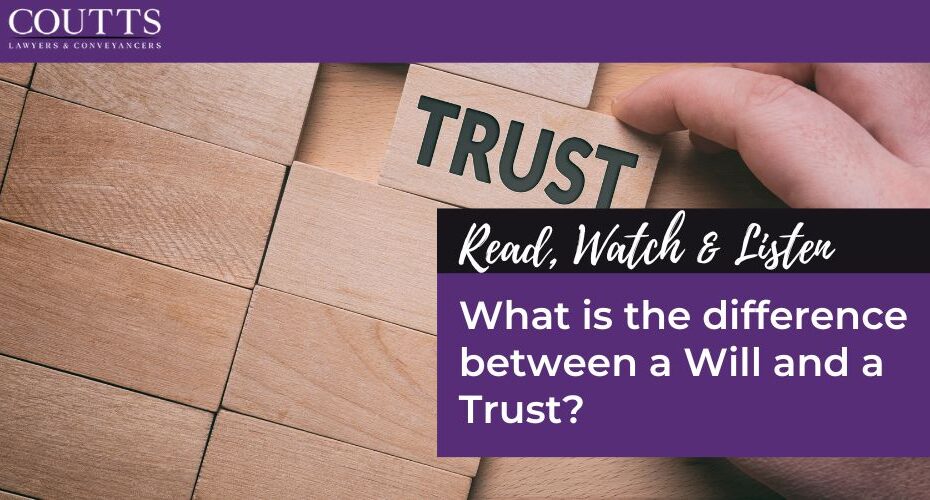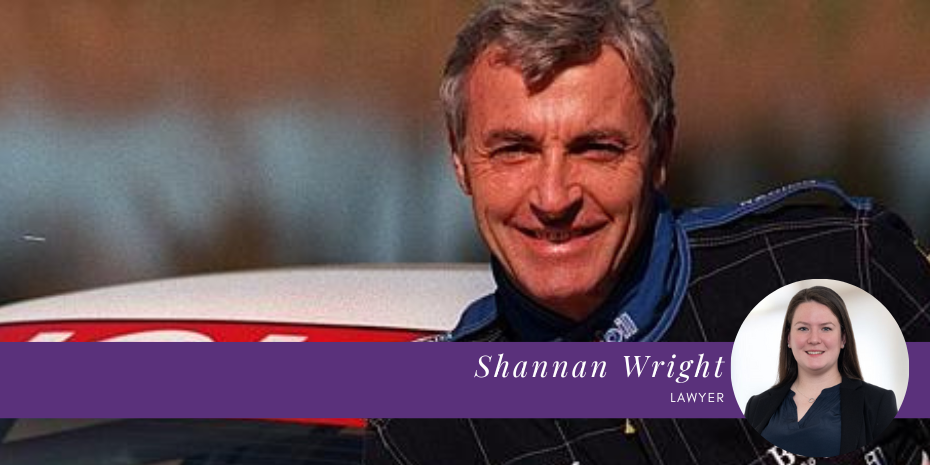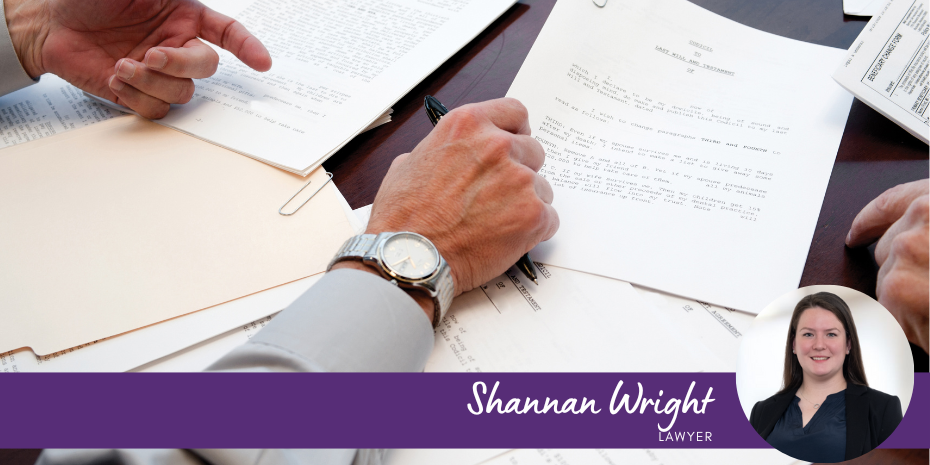KEY TAKE-OUTS:
- A will is a legal document that allows you to decide how your assets are distributed in the event of your death.
- A trust is a legal document that allows you to transfer assets to a trustee to hold on behalf of your beneficiaries.
- A trust can be created in a will (testamentary trust) or during your lifetime.
Choosing the right Estate Planning Arrangement
What is a will?
A Will is a legal document that sets out your wishes on your death. These wishes can be:
- Who is to receive your assets such as your home, bank accounts, shares and personal possessions;
- Who you authorise to ensure your wishes are followed (your executor);
- Who you wish to appoint as guardians of your minor children;
- Funeral and burial directions.
For a will to be valid, you must sign it in the presence of two independent witnesses who must also sign the will in your presence. These witness must be over the age of 18 and ideally not related to you.
You must also understand and approve of the content of your will by reading it carefully and appreciating the directions you have made in it.
A will can be changed at any time prior to your death, provided you have the mental capacity to change it.
What is a trust?
A trust is an arrangement in which you benefit someone (‘beneficiary’) without giving the beneficiary control of the benefit you are giving them. Instead, you appoint someone other than the beneficiary (‘trustee’) to hold the benefit on the beneficiary’s behalf and manage it for them.
A trust can be established in your will or during your lifetime.
Testamentary Trust
A trust set up in a will is called a “testamentary trust”.
A simple and common example of a trust in a will is if you wish to leave money to a person under 18 years. The money will not be given to the child outright, instead it will be held in trust by the trustee (often the executor) until the child turns 18 years.
Similarly, if your chosen beneficiary experiences difficulty in managing money as a result of a health condition, drug, alcohol or gambling addiction or is a spendthrift, a trustee can hold the money on their behalf and use the money for the beneficiary’s health, welfare and education.
If your beneficiary has a severe disability (as assessed by Centrelink), a unique form of trust can be established to provide for their care and accommodation. This type of trust provides for the funds to be applied to the beneficiary to ensure that their current and future needs are catered for. It also provides a higher Centrelink asset test threshold to minimise the impact on the person’s Centrelink entitlements.
An alternate trust arrangement is to allow someone to live in your property after your death (right to reside), but not gift the property to that person. Instead, your trustee holds the property and on the death or other defined period of the person with the right to reside living in the house, the property is transferred to the beneficiaries named in your will. This is commonly used when a spouse wishes to ensure that their spouse has secure accommodation during their lifetime but on the death, re-partnering, marriage etc of their spouse the person wishes to benefit their children from a previous relationship.
Lifetime trust
A trust set up in a lifetime is called an “inter vivos trust”.
This type of trust is established and operates during your lifetime.
An inter vivos trust is established by a deed which sets out how the trust will operate. It sets out what the trustee is and isn’t allowed to do within the trust.
The trust deed sets out how long the trust will last which can be up to 80 years. It is however more common for the trust to come to an end because of an event occurring such as the beneficiary reaching a certain age or the beneficiary dying.
Discretionary trust
A discretionary trust is commonly used by families to manage and pass on assets within families. A person transfers their assets into the discretionary trust and the trustee then holds those assets, rather than the individual holding the assets themselves.
The trust deed sets out who within the family is a potential beneficiary of the trust, which is usually spouses, children, grandchildren and often spouses of children or grandchildren.
It is then at the discretion of the trustee to distribute assets and income from the trust to the potential beneficiaries, as permitted by the terms of the deed.
Fixed trust
If you wish for a beneficiary of your trust to have a set entitlement, you can establish a fixed trust in which the trust property is divided into several defined units. It is similar to a shareholder owning shares in a company.
The trust deed sets out the fixed capital and income entitlements of the beneficiaries who can be individuals, companies or other trusts.
This type of trust is generally used for unrelated members of two families holding an asset together, such as a joint venture arrangement.
Which arrangement is right for you?
You need to obtain specialist advice from a lawyer and accountant to determine what is the appropriate arrangement for you either during your lifetime or on your death.
Contact one of the lawyers in our friendly wills and estates teams at Coutts Lawyers and Conveyancers to discuss your specific legal requirements. If you do not have an accountant, we can also put you in touch with one of our trusted referral partners.
For further information please don’t hesitate to contact:
info@couttslegal.com.au
1300 268 887
Contact Coutts Lawyers & Conveyancers today.
This blog is merely general and non-specific information on the subject matter and is not and should not be considered or relied on as legal advice. Coutts is not responsible for any cost, expense, loss or liability whatsoever in relation to this blog, including all or any reliance on this blog or use or application of this blog by you.



